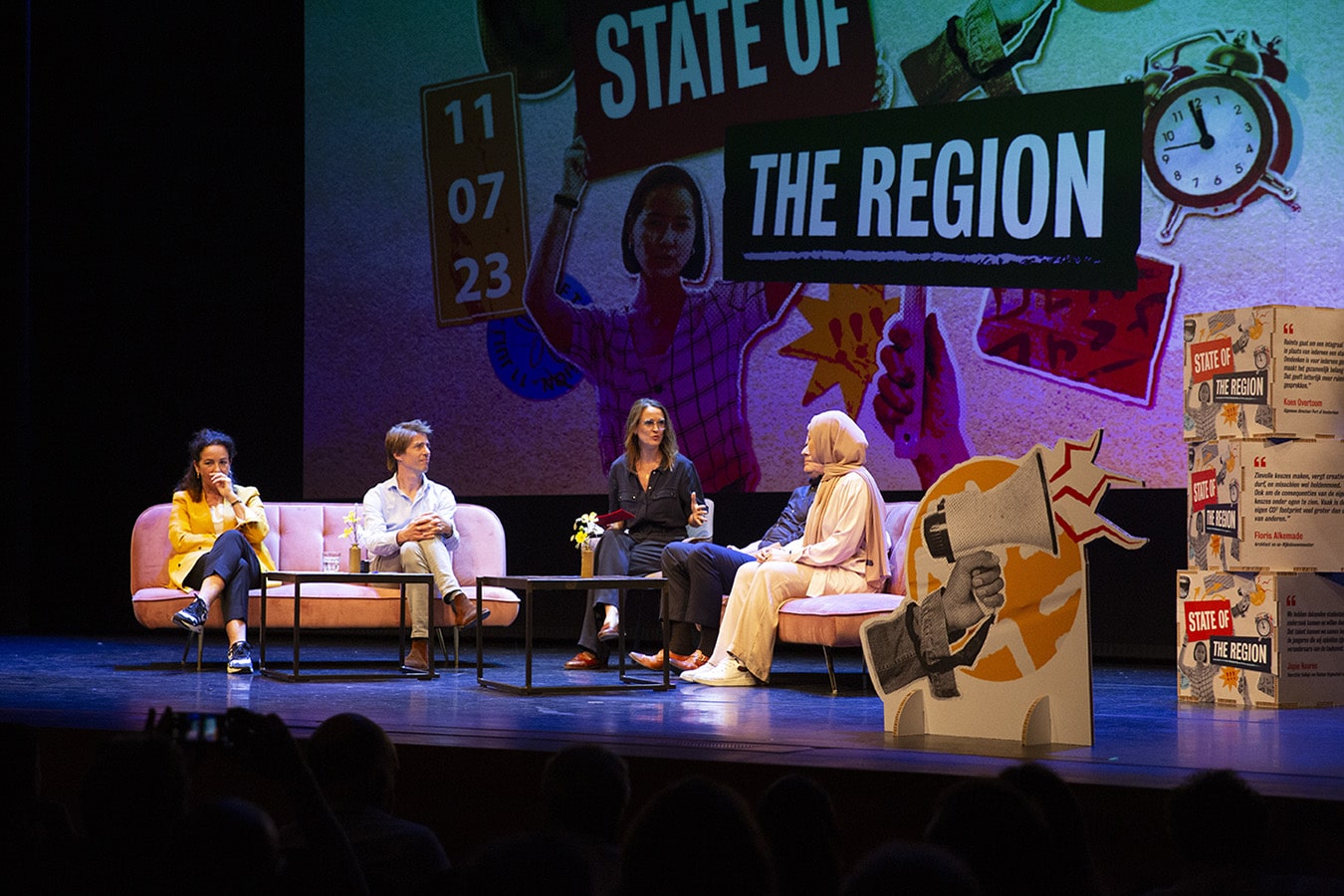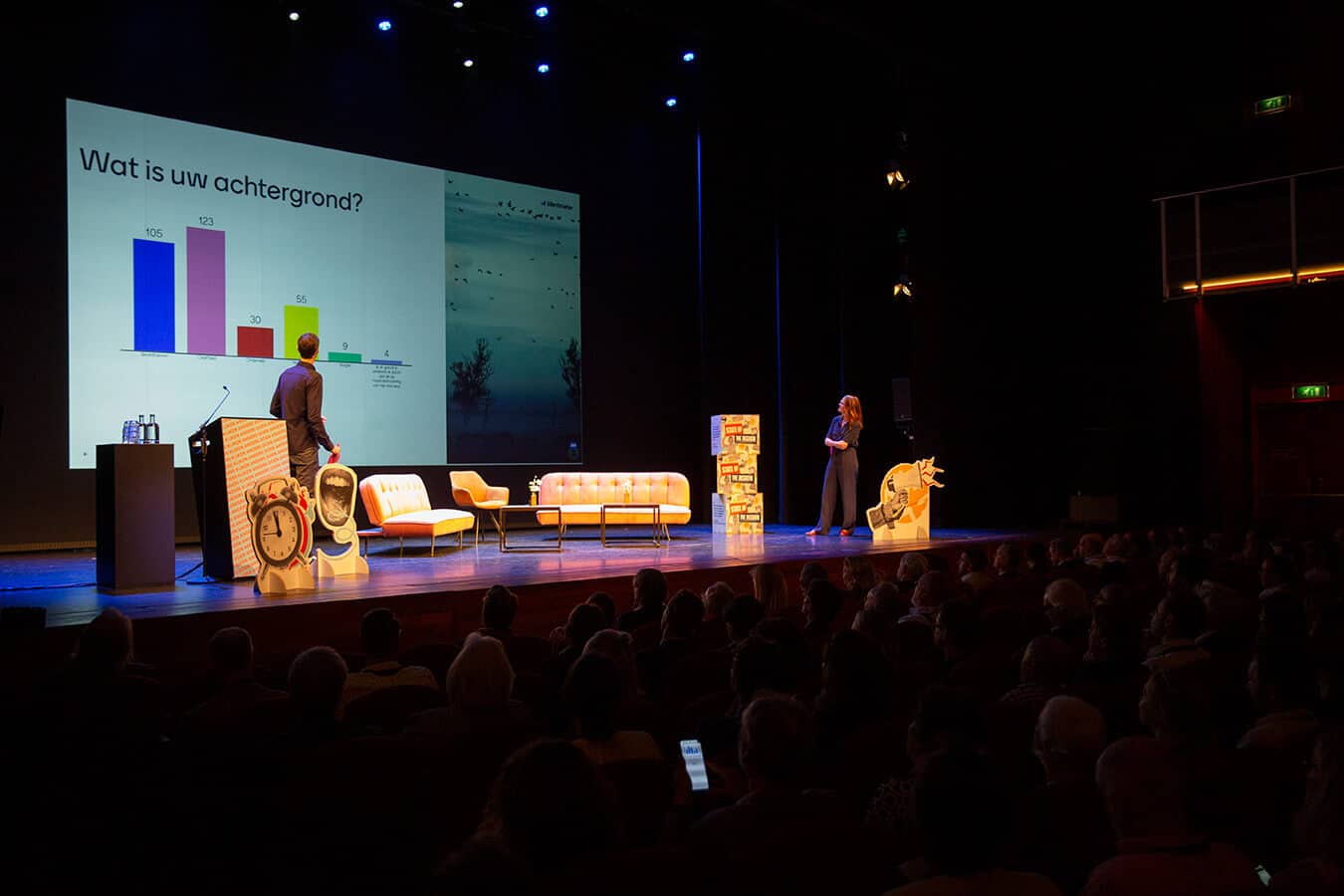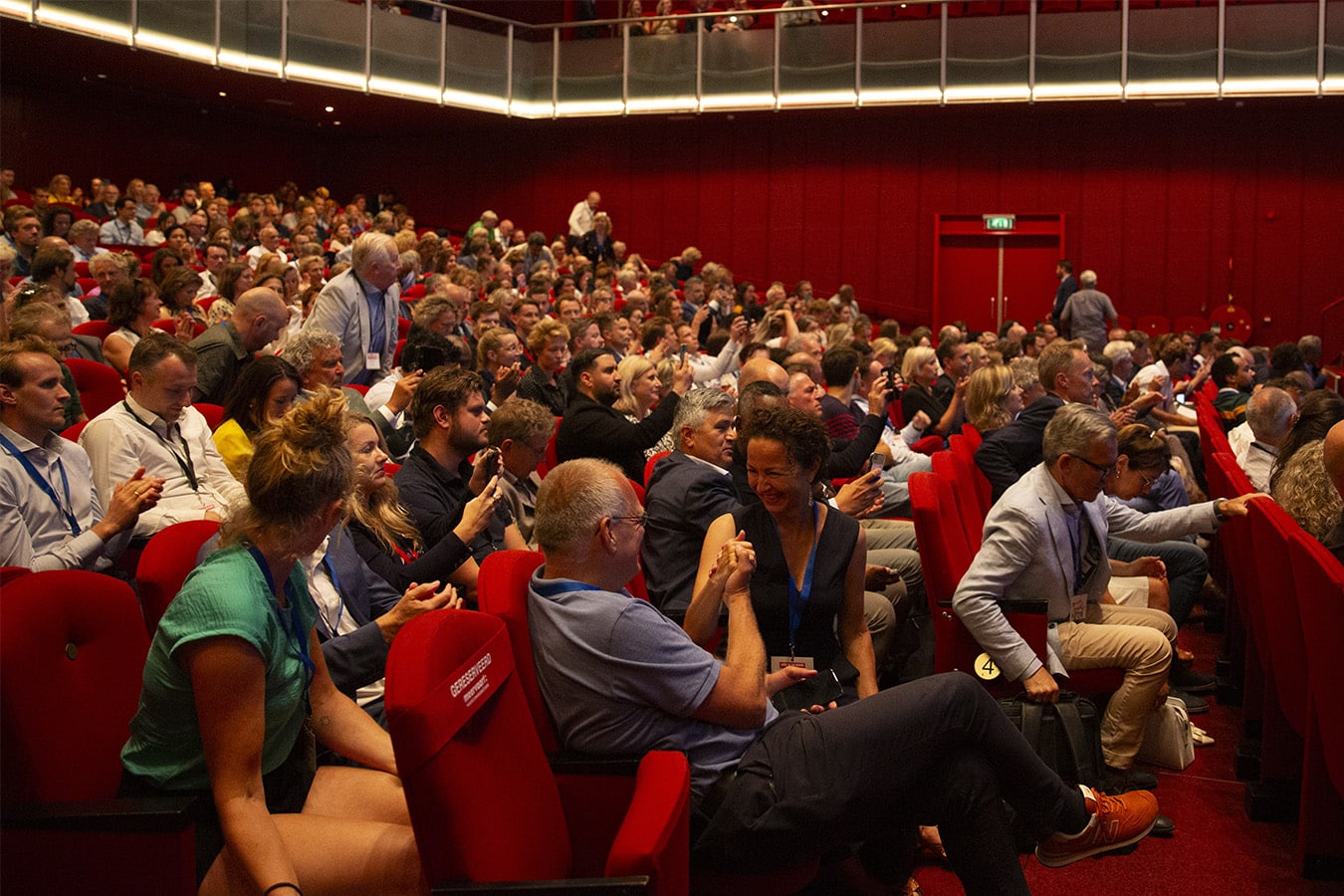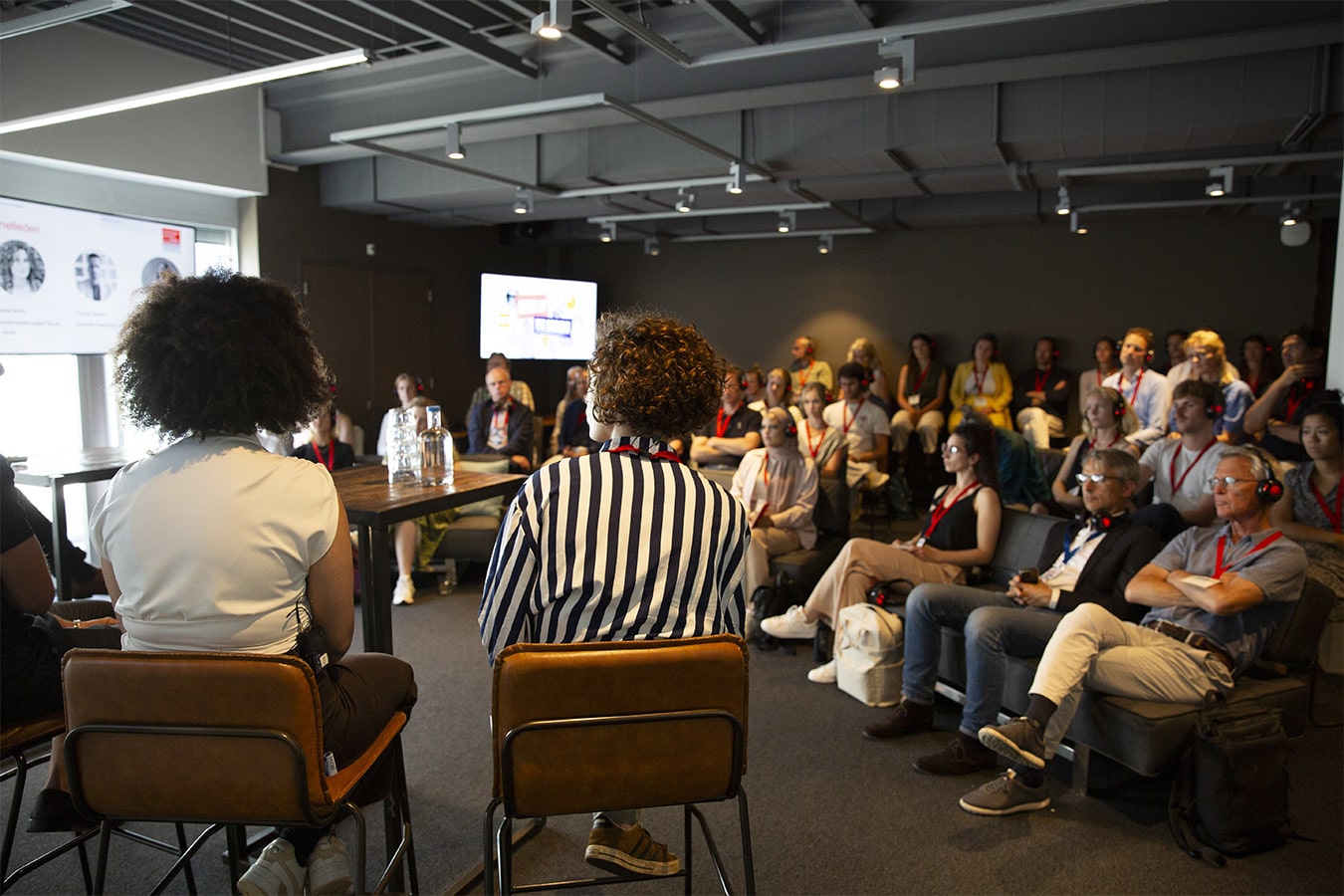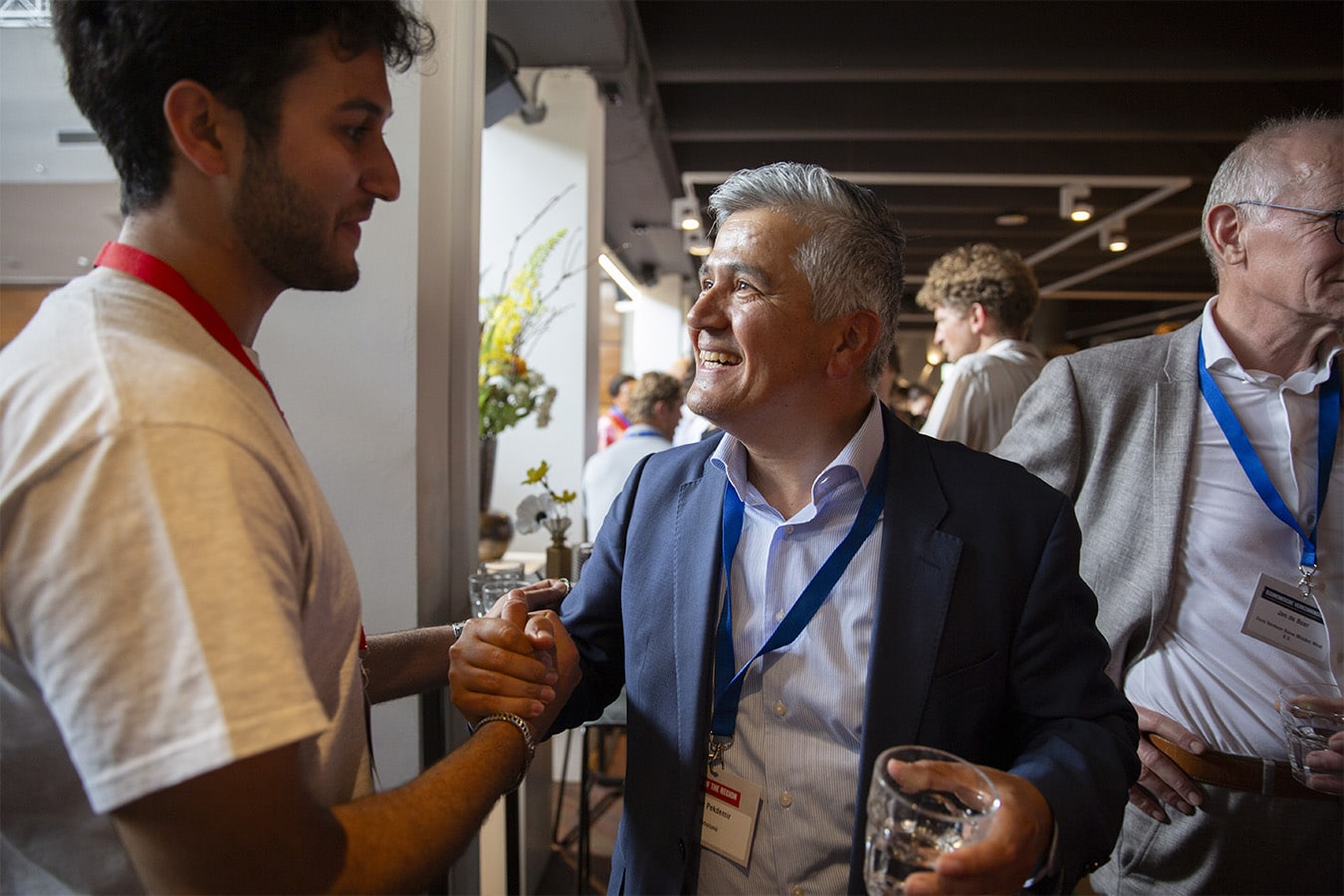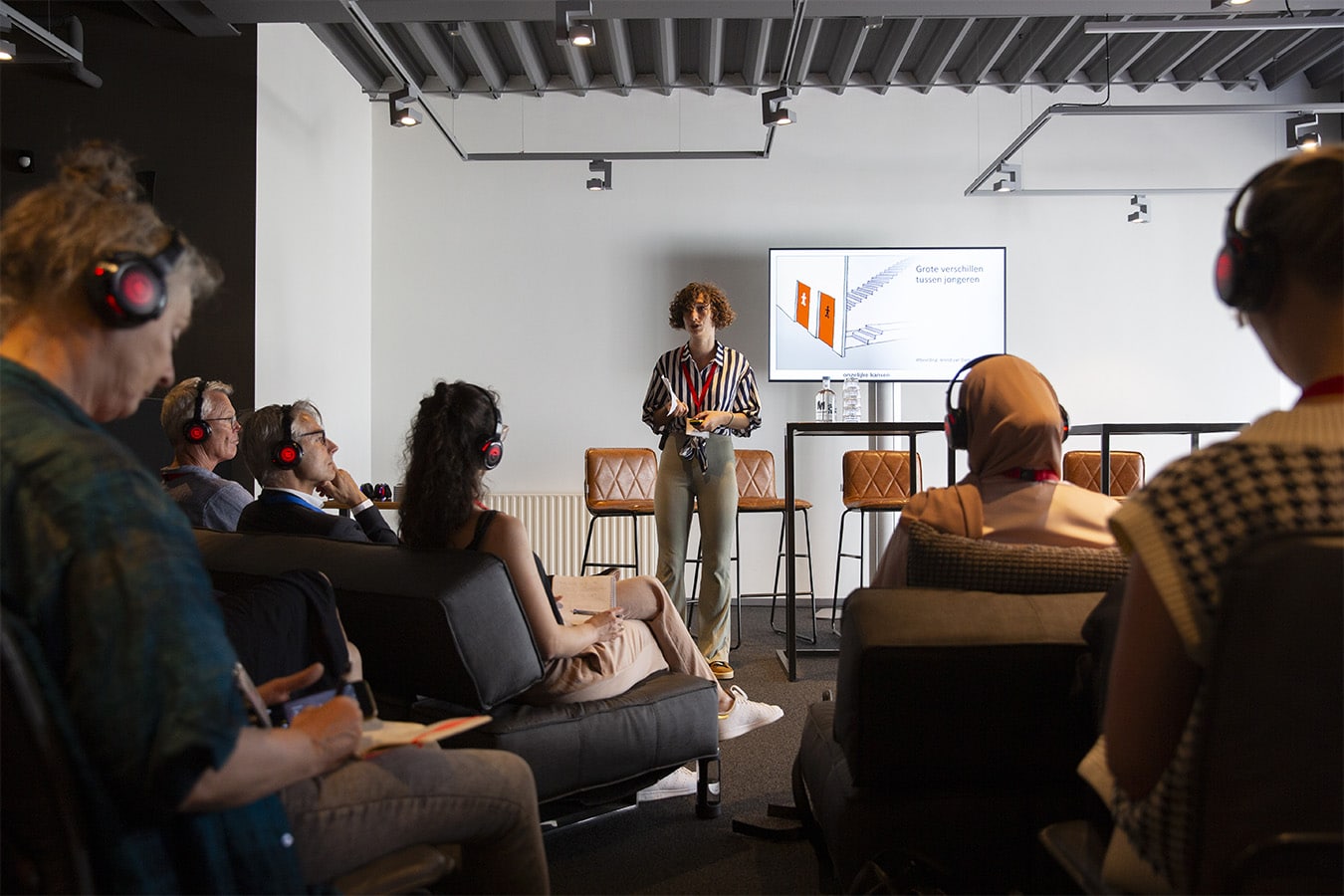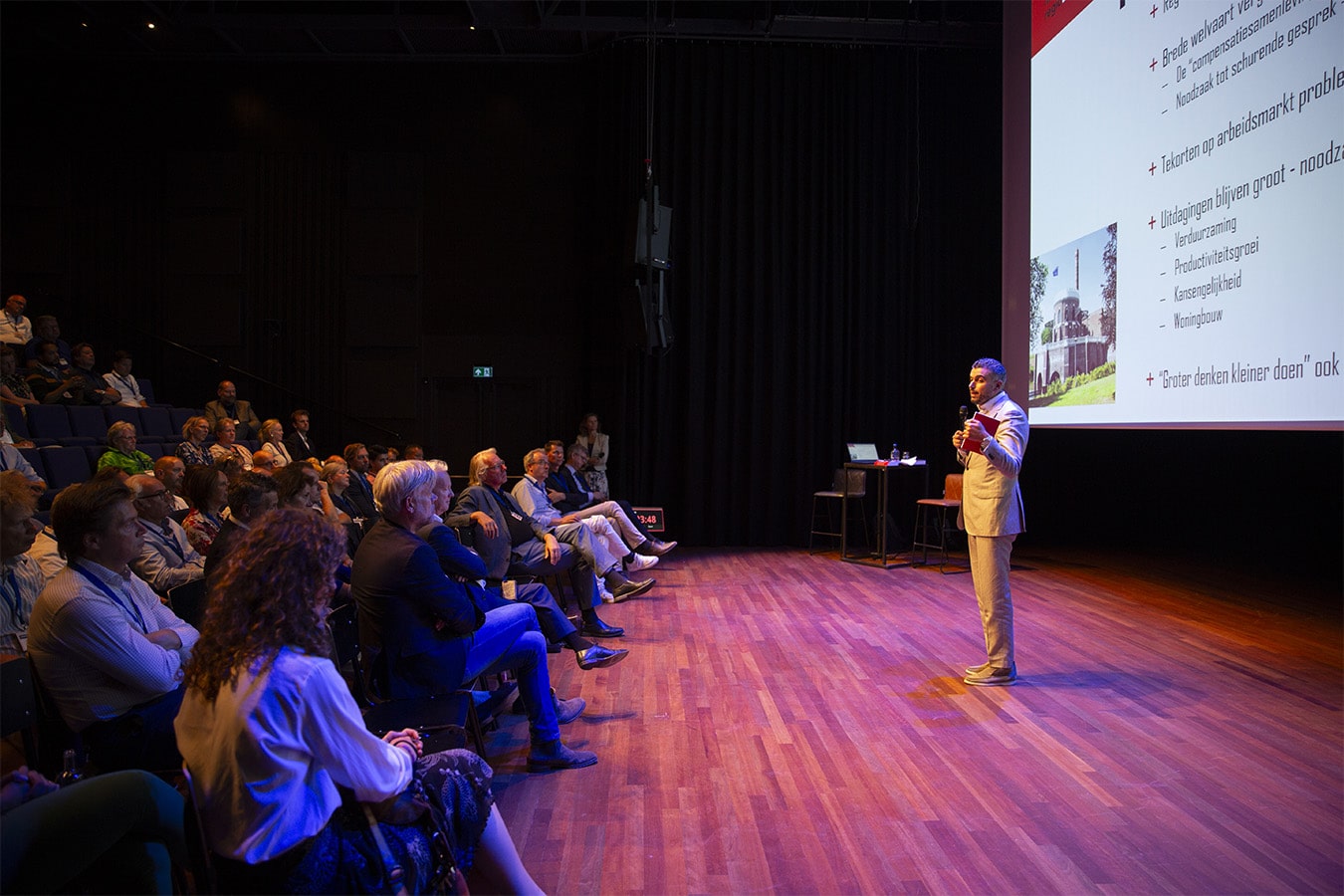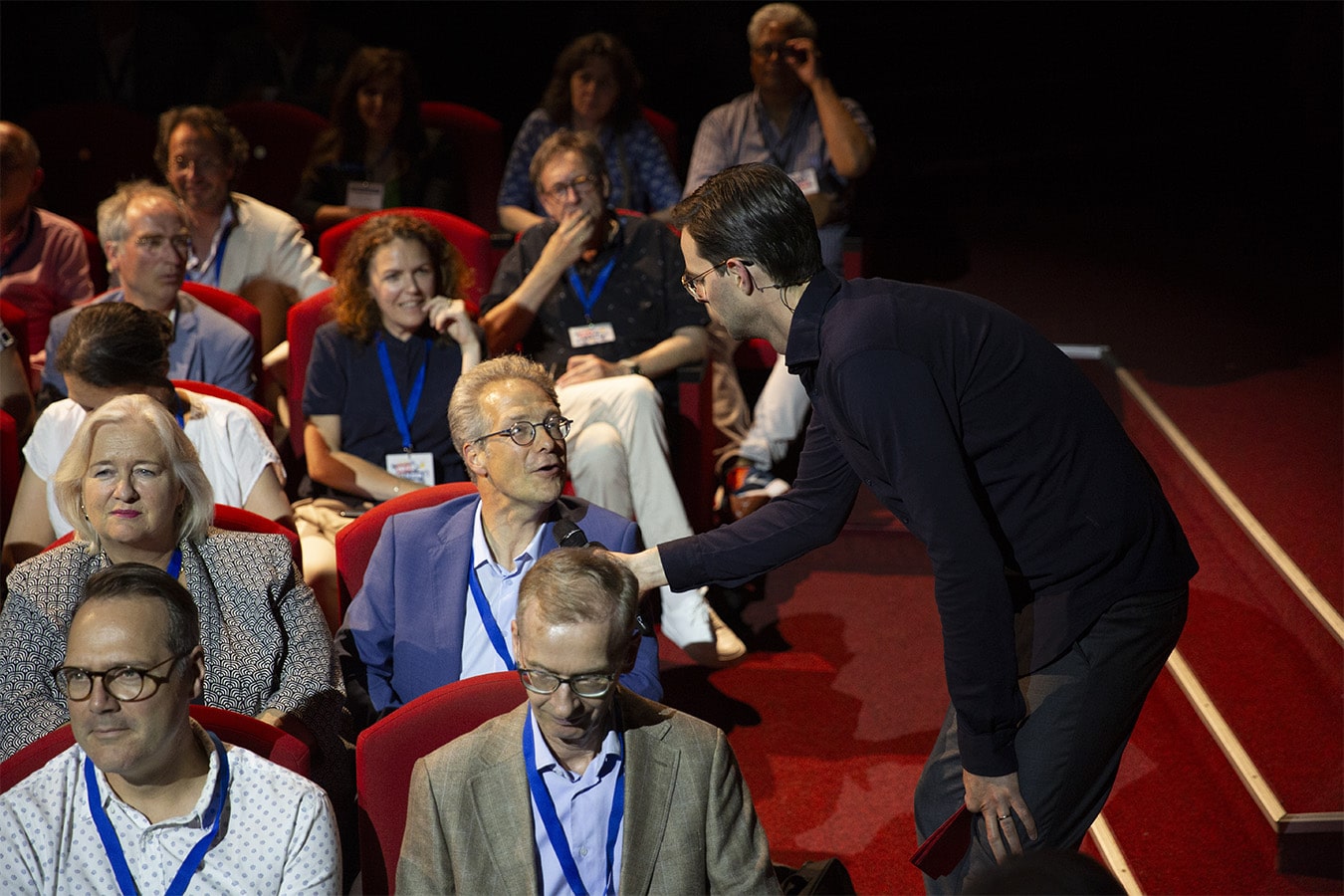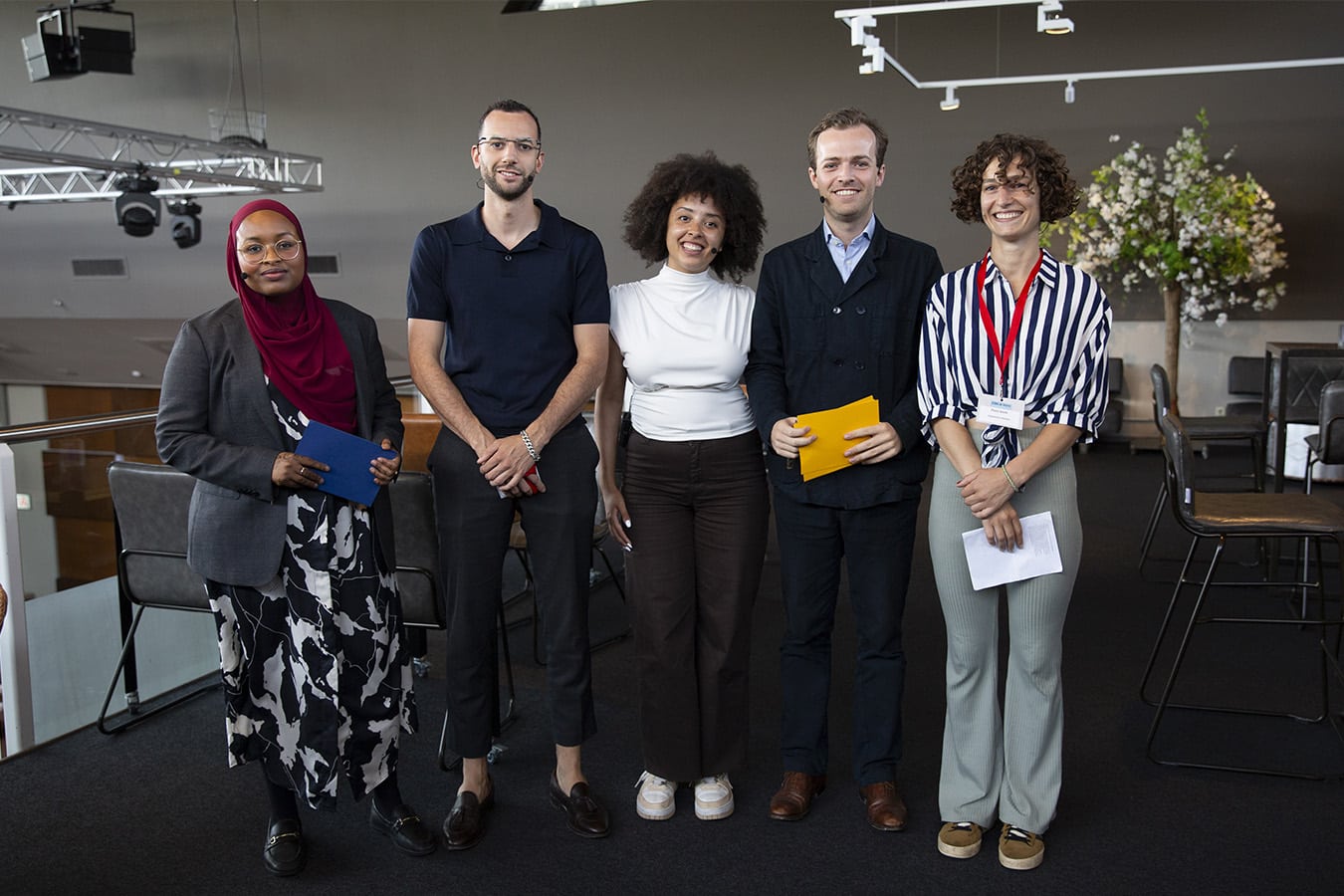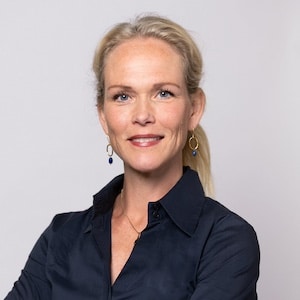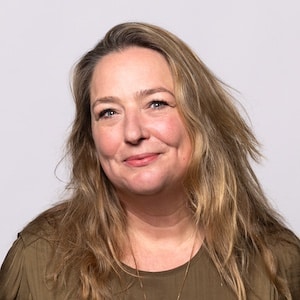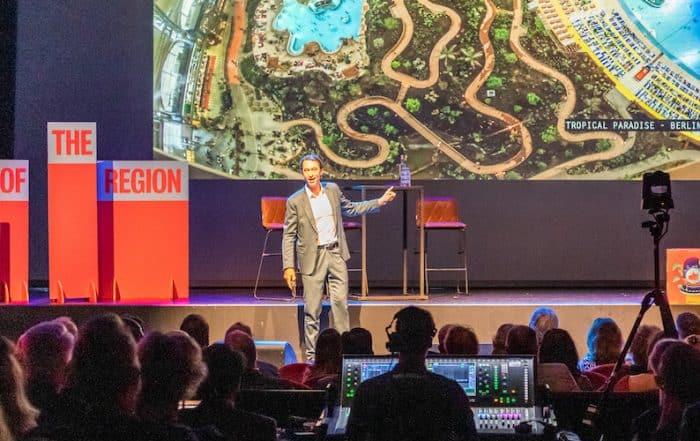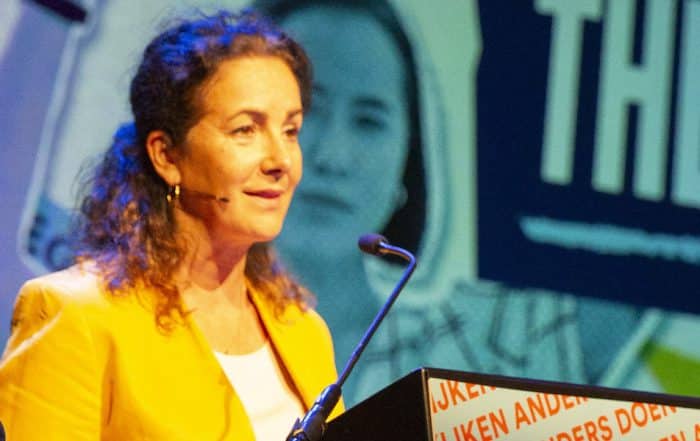State of the Region: Anders kijken en anders doen
Van grenzen aan de groei en zonnepanelen voor iedereen tot talenten werven op een andere manier en een nieuw perspectief op nieuwkomers: als we brede welvaart echt een kans willen geven, moeten we anders kijken en anders doen. Welkom bij de 6e editie van State of the Region, in de Meervaart Amsterdam.
Duurzaamheid. Wonen. De energietransitie. Als presentatoren Tex de Wit en Janine Abbring via de Mentimeter het publiek vragen naar de grootste uitdaging voor de Metropool Amsterdam verschijnt er een gevarieerde woordwolk op het scherm. Armoedebestrijding wordt genoemd, minder vergaderen en bereikbaarheid.
Ook noemen veel mensen brede welvaart. “En dat is vandaag een belangrijk thema”, zegt Abbring. “In eerdere State of the Regions lag de focus meer op cijfers, op economische welvaart. Nu richten we ons ook op minder materiële zaken.”
Dat zien we terug in een paar filmpjes. Pallas Achterberg, Challenge Officer bij Alliander roept daarin op beter te luisteren, tot samenwerken op een andere manier, een samenwerking waarin we ons eigen belang ondergeschikt maken aan het gemeenschappelijke belang. We zien een kinderarts die zich afvraagt waarom we ons niet veel meer richten op preventie. We zien ondernemers die bij het werven van talent verder kijken dan alleen het cv en ondernemers die zonnepanelen betaalbaar maken voor iedereen.
Geen lege term
Het zijn de concrete voorbeelden die nauw aansluiten bij de jaarlijkse State of the Region, de speech van Femke Halsema tijdens het gelijknamige evenement. Ze is burgemeester van Amsterdam, maar vandaag vooral voorzitter van de Metropoolregio Amsterdam én van Amsterdam Economic Board. Die organiseren dit evenement samen met de gemeente Amsterdam, amsterdam&partners en ROM InWest.
Halsema herhaalt de oproep die vandaag centraal staat: anders kijken en anders doen. “We moeten fundamentele keuzes maken om ervoor te zorgen dat brede welvaart geen lege term wordt. Dat we het werkelijk gaan uitvoeren. Wij doen nu deze oproep. En ik hoop dat we die samen met inwoners, bedrijven, maatschappelijke instellingen en u in de zaal werkelijkheid kunnen laten worden.”
Bijzondere samenwerking
De Board-voorzitter is net terug uit Hatay, de Turkse provincie die zo zwaar werd getroffen door de aardbeving. Door slechte samenwerkingen lukt het de regio niet goed om de enorme schades te herstellen. Het leven ligt er stil. In Nederland zit die samenwerking in ons bloed. De eerste Nederlandse dijk liep langs het Gooi, via Diemen en Amsterdam naar het IJ en was het gevolg van een bijzondere samenwerking tussen boeren, vissers, de graaf en inwoners.
“Die samenwerking vraagt nog wel onze aandacht. Ons verdienmodel is aan vernieuwing toe. Economische groei zal hand in hand moeten gaan met sociaal-maatschappelijke vooruitgang. Onze huidige voorspoed bereikt nog lang niet iedereen. Inkomensverschillen zijn groot, er is te veel uitstoot van fijnstof, er zijn te weinig arbeidskrachten en er is een tekort aan woningen.”
De Metropool als meent
Toch ziet Halsema geen reden voor pessimisme. Met dank aan grote en kleine bedrijven die in de Metropool hun uitvalsbasis hebben verdienen we hier 20 procent van het bruto binnenlands product. De voorzieningen en kennisinstellingen zijn van hoog niveau. En we zijn een veerkrachtige regio.
Vertrouwen is volgens Halsema de kern van onze toekomstige samenwerking. “We kunnen niet met elkaar blijven concurreren, we moeten elkaar versterken. We moeten onze Metropool zien als de meent van vroeger, een gemeenschappelijke weidegrond waar we samen verantwoordelijk voor zijn. Als jij die niet goed gebruikt, heeft dat gevolgen voor de andere gebruikers. De Metropool is te lang beschouwd als onbeheerde, woeste grond waar geen samenwerking voor nodig is.”
Halsema haalt econoom en nobelprijswinnaar Elinor Ostrom aan, die pleitte voor goede instituties voor gemeenschappelijk beheer. “We beheren goederen die we moeten laten floreren voor het welvaren van de gehele gemeenschap, zegt zij. Dat betekent dat we altijd het belang van de ander hebben mee te wegen, ook dat van mensen in de rest van Nederland en de wereld en ook dat van toekomstige generaties.”
‘Een mega radicale transformatie’
Anders kijken en anders doen klinkt misschien eenvoudig, maar vraagt van iedereen in de Metropool Amsterdam een nieuwe manier van denken en doen. Op het podium gaat Femke Halsema hierover in gesprek met Ingo UytdenHaage, co-CEO van Adyen, architect Thomas Rau en onderzoeken en community builder Soraya Shawki. Wat vinden zij van de oproep anders te kijken en anders te doen?
Wat Thomas Rau, architect, ondernemer, innovator betreft gaat de oproep niet ver genoeg. “Het is nog niet radicaal genoeg. We hebben het over 2050, maar ik vind dat we een duidelijk beeld moeten hebben van waar we over zeven jaar als Metropool willen staan. Daarbij moeten we niet doen wat mogelijk is, maar wat nodig is: een mega radicale transformatie. En dat is niet altijd comfortabel.”
Expats
Ingo Uytdehaage, co-CEO van Adyen is wat positiever. “Bedrijven kijken vaak al verder dan alleen maar naar geld verdienen. Wij kijken ook naar onze impact op de regio, op de stad.” Die impact van Adyen is bijvoorbeeld dat er veel expats voor hen werken, zegt Abbring, en die hebben ook allemaal woonruimte nodig. Uytdenhaage ziet dat anders. “Ik noem ze geen expats, het zijn jongeren van begin 30 die een lokaal contract hebben en dezelfde uitdagingen hebben als andere jonge Amsterdammers. En ze willen ook helemaal niet allemaal in de stad wonen.” Hij krijgt bijval van Halsema: “We hebben internationale arbeidskrachten nodig voor het werk dat er ligt.”
Soraya Shawki is researcher/community bouwer bij Open Embassy, dat nieuwkomers wegwijs maakt in de Nederlandse samenleving. Zij had graag een concretere oproep gezien. “Er is bijvoorbeeld nog veel systemische ongelijkheid. Er zijn heel veel mensen hier die pas na vijf jaar mogen werken. Dat zijn allemaal mensen die in de zorg en techniek aan de slag kunnen gaan.” Onlangs sprak ze een Iraanse wiskundelerares die Nederlands en Engels spreekt. “De gemeente vond dat ze zo snel mogelijk aan de slag moest gaan en stuurde een vacature voor een kassamedewerker door. Er ligt hier ook een rol voor werkgevers, om trajecten voor nieuwkomers beschikbaar te maken.”
Lessen aan nieuwkomers
Adyen is daar bijvoorbeeld al mee bezig en geeft programmeerlessen aan nieuwkomers. Ook laat het bedrijf in speciale lessen op scholen zien hoe technologie werkt, om zo de interesse van jongeren voor techniek te wekken. Wat Halsema betreft is het een goed voorbeeld van hoe bedrijven in de afgelopen jaren een andere taakopvatting hebben gekregen. “Waar ze voorheen misschien doneerden aan culturele instellingen, zie je nu dat ze veel meer investeren in de lokale economie en met jongeren en inwoners praten.”
Volgens Shawki mag dat nog wel wat verder gaan, bij overheden én bedrijven. “Participatie is vaak nog een vinkje op een lijstje, het is niet ingebed waardoor er bij bedrijven en overheden weinig kennis is over wat er precies nodig is. En dat terwijl mensen letterlijk expert zijn over hun eigen ervaringen. Wij hebben bijvoorbeeld expertpools van mensen die ervaring hebben met de nieuwe Wet inburgering.”
Nieuwe ontmoetingen
Soraya Shawki en Ingo UytdenHaage kenden elkaar tot vandaag nog niet, terwijl er wel wat overlap zit in hun werkzaamheden. Anders kijken en anders doen gaat ook over dit soort ontmoetingen, stelt interviewer Abbring vast. “De toekomst ligt altijd in de mensen die je niet kent”, bevestigt Rau. “In gesprekken met mensen die je niet kent. Dus ga het gesprek aan. Wij zijn de oplossing.”
Halsema besluit: “De Metropoolregio was te lang een soort noodzakelijk kwaad, maar volgens mij moeten we het omdraaien. Alle grote onderwerpen moeten we op regionaal niveau met elkaar bespreken. We moeten wantrouwen inruilen voor vertrouwen. Alleen zo kunnen we radicale stappen zetten.”
Wil je direct aan de slag? Op Anders kijken, anders doen vind je inspirerende interviews en mooie voorbeelden. Je kunt er je eigen initiatieven en manier van werken onder de loep nemen. Past die wel bij de Metropool van Morgen? Ook kun je je er inschrijven voor de werkateliers die we na de zomer gaan organiseren.
Voor het hoofdprogramma waren er twee side-events.
State of the Youth
Young on Board is in gesprek gegaan over het betrekken van jongeren bij het vormgeven van de toekomst van de Metropool Amsterdam. Het thema participatie bleek na dit weekend relevanter dan ooit. Hoe zorgen we voor brede maatschappelijke betrokkenheid en hoe zorgen we ervoor dat jongeren weer vertrouwen krijgen in de politiek èn hun stemrecht?
Paula Smith (docent-onderzoeker Social Work bij InHolland) gaf ons een stoomcursus over jongerenparticipatie. Ze ging daarbij niet alleen in op de verschillen tussen jongeren en de rest van het electoraat, maar ook over de verschillen tussen jongeren. De belangrijkste boodschap van Paula is dat we jongerenparticipatie moeten gaan verankeren in (beleid)structuren. Als je jongeren nu betrekt creëer je namelijk geëngageerde burgers voor later.
Vervolgens zijn we met Younes Douari (Represent Jezelf) en Kimberley Snijders (voorzitter van De Nationale Jeugdraad) en Paula Smith in gesprek gegaan. Zij deelden hun ervaringen over wat er in de praktijk werkt om jongeren te betrekken in het maatschappelijke debat en bij het vormgeven van beleid. We hebben daarbij een aantal belangrijke lessen opgehaald, namelijk:
- Betrek jongeren op tijd, en gebruik ze niet als windowdressing.
- Maak gebruik van sociale structuren in wijken en dorpen en ga naar jongeren toe
- Durf het aan om het resultaat echt uit handen te geven
Bekijk de videoregistratie van de discussie tijdens dit side-event en de presentatie van Paula Smith via Open Research.
Economische Verkenningen
Het andere side event was volledig gewijd aan de Economische Verkenningen MRA 2023. Lees meer over dit rapport via Open Research en bekijk de video’s.
Publicaties
- https://www.nhnieuws.nl/nieuws/321739/onze-economie-groeit-tegelijk-zijn-er-zorgen-weelde-is-niet-langer-vanzelfsprekend
- https://www.parool.nl/amsterdam/economische-groei-in-regio-amsterdam-vlakt-af-grote-gevolgen-voor-woningbouw-en-duurzaamheid~b1735f3f/
- https://m.noordhollandsdagblad.nl/cnt/dmf20230711_57753888
- https://www.nhnieuws.nl/nieuws/321741/oproep-van-topeconoom-aan-30-gemeenten-stop-met-keuzes-voor-je-uit-te-schuiven
- https://www.noordhollandsdagblad.nl/cnt/dmf20230711_65337804
13 juli 2023
Meer weten over
Neem contact op
Blijf jij ook op de hoogte?
8x per jaar nieuws en events uit de regio: schrijf je in voor de Board Update nieuwsbrief
Deel dit artikel
Wil je op de hoogte blijven?
Volg ons dagelijks op LinkedIn en schrijf je in voor de Board Update nieuwsbrief.
Lees ook deze berichten
- Een nieuwe lichting gedreven jongeren is aangetreden bij Young on Board, de ...
- Met de selectie van vier kanshebbers is de regionale voorronde van de ...
- Met meer dan 80 ondernemers, 40 investeerders en diverse dienstverleners bood LSH Capital Match ...

